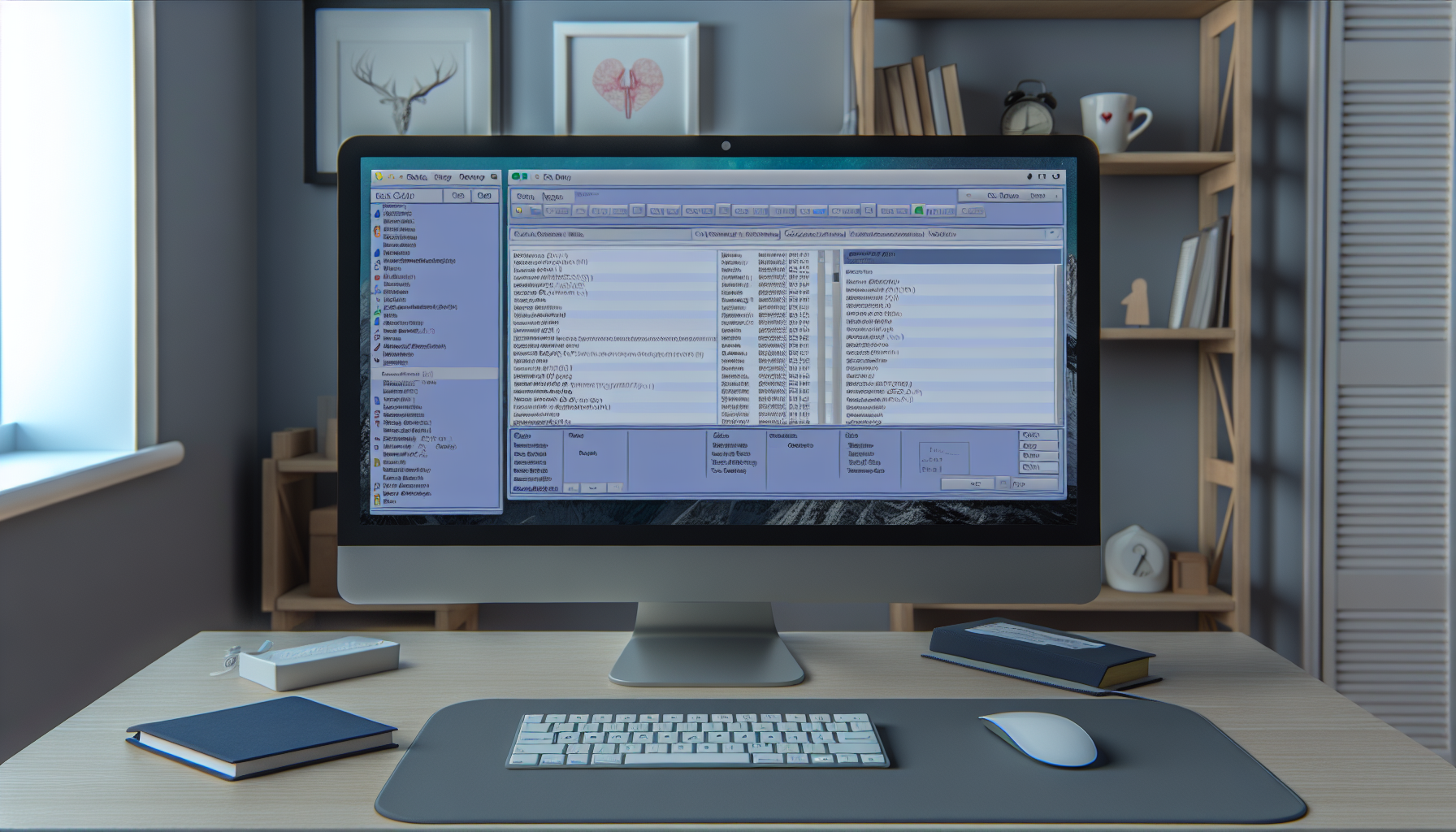
Medical Coding Jobs You Can Do From Home
Medical Coding Jobs You Can Do From Home
Introduction to Medical Coding Jobs You Can Do From Home
In recent years, the demand for remote work opportunities has surged, and the healthcare industry has not been left behind. Medical coding is a vital aspect of healthcare administration, translating medical records into universal codes used for billing and data analysis. The good news is that medical coding jobs can now be done from the comfort of your home, offering flexibility and work-life balance to professionals in the field. In this article, we will explore the world of medical coding jobs you can do from home, discussing the benefits, challenges, and how to get started in this rewarding career path.
Overview of Medical Coding
Medical coding is an essential part of the healthcare system, where trained professionals assign alphanumeric codes to diagnoses, procedures, and medical services. These codes are used for various purposes, including billing insurance companies, ensuring proper reimbursement for healthcare providers, and collecting data for research and analytics. Accuracy in medical coding is crucial, as it impacts the financial health of healthcare facilities and the quality of patient care.
Medical coders play a vital role in the healthcare industry, acting as a bridge between healthcare providers, insurance companies, and government agencies. They must have a strong understanding of medical terminology, anatomy, and physiology, as well as a proficiency in coding systems such as ICD-10-CM, CPT, and HCPCS Level II. With the advent of electronic health records (EHR) and telecommuting technologies, medical coding jobs have become increasingly accessible for remote work setups.
Benefits of Working From Home as a Medical Coder
Working from home as a medical coder offers a range of benefits that appeal to professionals seeking a flexible and autonomous work environment. Some of the advantages of remote medical coding jobs include:
-
Flexibility: Remote medical coding jobs allow professionals to set their own schedules, providing the flexibility to work at times that suit their lifestyle. Whether you prefer to work early in the morning or late at night, remote work offers the freedom to design your workday.
-
Work-Life Balance: By eliminating commute times and office distractions, working from home enables medical coders to achieve a better work-life balance. Balancing professional responsibilities with personal activities becomes more manageable when working remotely.
-
Cost Savings: Working from home eliminates the need for commuting, work attire, and dining out, resulting in significant cost savings for medical coders. This can lead to increased disposable income and reduced financial stress.
-
Increased Job Opportunities: Remote work opens up job opportunities for medical coders beyond their geographical location. Professionals can take on freelance projects, work for remote coding companies, or collaborate with healthcare providers from different regions.
-
Autonomy: Remote medical coding jobs often provide greater autonomy and independence in how work is completed. Coders can focus on their tasks without constant supervision, fostering a sense of ownership and responsibility.
-
Access to a Growing Field: The demand for healthcare services is on the rise, driving the need for skilled medical coders. By offering remote work options, the field of medical coding becomes more accessible to a diverse range of professionals.

Skills Required for Remote Medical Coding Jobs
While working from home offers a host of benefits, remote medical coding jobs require specific skill sets to be successful in the role. Some essential skills for aspiring remote medical coders include:
-
Knowledge of Coding Systems: Proficiency in coding systems such as ICD-10-CM, CPT, and HCPCS Level II is fundamental to accurate medical coding. Medical coders must understand how to navigate these code sets and apply them correctly to medical records.
-
Medical Terminology: A strong foundation in medical terminology, anatomy, and physiology is crucial for medical coders to interpret healthcare records accurately. Understanding medical terms and procedures is essential for assigning the correct codes.
-
Analytical Skills: Medical coding requires logical thinking and problem-solving skills to analyze complex medical records and assign the appropriate codes. Coders must be detail-oriented and able to identify inconsistencies in documentation.
-
Attention to Detail: Precision is key in medical coding, as errors can lead to billing discrepancies and potential legal issues. Remote medical coders must pay close attention to detail and ensure accuracy in code assignment.
-
Computer Proficiency: Remote medical coding jobs rely heavily on technology, including electronic health record systems and coding software. Proficiency in using computers, software programs, and online resources is essential for remote work success.
-
Communication Skills: While remote medical coders work independently, they often need to communicate with healthcare providers, billing specialists, and insurance companies. Strong written and verbal communication skills are valuable in clarifying coding queries and resolving issues.
Certification and Training for Remote Medical Coding Jobs
To pursue a career in remote medical coding, professionals typically need a combination of education, certification, and practical training. While some employers may hire entry-level coders with a high school diploma and on-the-job training, obtaining a recognized certification can enhance job prospects and earning potential in the field. The following certifications are widely recognized in the medical coding industry:
-
Certified Professional Coder (CPC): Offered by the American Academy of Professional Coders (AAPC), the CPC certification demonstrates proficiency in assigning evaluation and management, surgical, and medical codes. Candidates must pass an exam to obtain certification.
-
Certified Coding Specialist (CCS): Provided by the American Health Information Management Association (AHIMA), the CCS certification focuses on hospital inpatient and outpatient coding. Candidates must pass an exam to become certified.
-
Certified Coding Associate (CCA): The CCA certification, also offered by AHIMA, is aimed at entry-level coders and covers basic coding skills. Passing an exam is required to earn the certification.
-
Certified Professional Biller (CPB): While not specific to coding, the CPB certification from AAPC focuses on medical billing, reimbursement methodologies, and compliance. This certification can complement a medical coding career.
-
**AHIMA offers a range of specialized coding certifications, including Certified Coding Specialist-Physician-Based (CCS-P) for outpatient coding and Certified in Healthcare Privacy and Security (CHPS) for data security and privacy compliance.
Finding Remote Medical Coding Jobs
Once you have the necessary education and certification, the next step is to find remote medical coding job opportunities that align with your skills and career goals. Several avenues can lead you to remote coding positions, including:
-
Online Job Boards: Websites such as Indeed, Glassdoor, and FlexJobs regularly post remote medical coding job openings from healthcare facilities, coding companies, and consulting firms. Use keywords like “remote medical coder” and “work-from-home coding jobs” to narrow your search.
-
Remote Coding Companies: Many companies specialize in providing remote coding services to healthcare providers and hospitals. These companies often hire remote medical coders to work on a contract or freelance basis. Explore companies like Aviacode, Change Healthcare, CSI Companies, and Maxim Health Information Services for potential opportunities.
-
Healthcare Organizations: Hospitals, physician practices, clinics, and insurance companies sometimes hire remote medical coders to support their coding and billing operations. Check the career pages of healthcare organizations in your area for remote job listings.
-
Professional Associations: Joining professional organizations such as AAPC and AHIMA can provide access to job boards, networking opportunities, and resources for remote medical coders. These associations often have dedicated sections for remote work in the healthcare industry.
-
Freelance Platforms: Websites like Upwork, Freelancer, and Fiverr allow medical coders to offer their services on a freelance basis. Creating a profile and marketing your coding skills on these platforms can attract clients seeking remote coding assistance.
Challenges of Remote Medical Coding Jobs
While remote medical coding offers numerous benefits, it also comes with its set of challenges that professionals must navigate to succeed in this work setup. Some common challenges of remote medical coding jobs include:
-
Isolation: Working from home can lead to feelings of isolation and loneliness, especially for extroverted individuals who thrive on social interactions in a traditional office environment. Remote medical coders must find ways to stay connected with colleagues and peers through virtual communication channels.
-
Distractions: Home-based work environments can be prone to distractions, whether from household chores, family members, or personal responsibilities. Maintaining focus and productivity while working remotely requires discipline and effective time management skills.
-
Technical Issues: Remote medical coders rely on technology and internet connectivity to perform their tasks. Dealing with technical glitches, software malfunctions, or broadband outages can disrupt workflow and impact productivity. Having troubleshooting skills and backup plans is essential for mitigating technical challenges.
-
Work-Life Boundaries: The flexibility of remote work can blur the boundaries between professional and personal life, making it challenging to switch off from work responsibilities. Establishing clear work hours, creating a dedicated workspace, and setting boundaries with family members are vital for maintaining a healthy work-life balance.
-
Communication Hurdles: Remote communication relies on emails, instant messaging, and video calls, which may lack the nuances of face-to-face interactions. Miscommunications, delays in responses, or misunderstandings can occur when conveying complex coding queries or discussing coding-related issues remotely.
-
Professional Development: Remote medical coders may miss out on networking opportunities, mentorship programs, and on-the-job training available in traditional office settings. Staying abreast of industry updates, attending virtual conferences, and seeking online training courses can help remote coders enhance their skills and professional development.
Conclusion
In conclusion, medical coding jobs you can do from home offer a promising career path for healthcare professionals seeking flexibility, autonomy, and meaningful work in the field of healthcare administration. Remote medical coding requires a unique set of skills, including coding expertise, medical knowledge, analytical abilities, and strong communication skills. By obtaining relevant certifications, training, and exploring job opportunities in remote work platforms, medical coders can embark on a rewarding journey in the evolving landscape of telecommuting healthcare roles.
Whether you are a seasoned medical coder looking for a change of pace or a newcomer to the field exploring remote work options, the world of medical coding offers diverse opportunities for growth and advancement. By understanding the benefits, challenges, and skills required for remote medical coding jobs, you can make informed decisions to thrive in this dynamic and in-demand profession.
FAQs about Medical Coding Jobs You Can Do From Home
1. Can I work as a remote medical coder without certification?
While some entry-level positions may not require certification, obtaining a recognized certification such as CPC or CCS can enhance your job prospects and earning potential in the field of remote medical coding.
2. What equipment do I need to work from home as a medical coder?
To work from home as a medical coder, you will need a computer or laptop, high-speed internet connection, coding software, reference materials, and a dedicated workspace free from distractions.
3. How do I stay updated on coding changes and industry trends while working remotely?
To stay current in the field of medical coding, remote coders can participate in online webinars, attend virtual conferences, join professional associations, and regularly review updates from organizations like AAPC and AHIMA.
4. Are there opportunities for advancement in remote medical coding careers?
Remote medical coders can advance their careers by pursuing specialized certifications, gaining experience in different coding specialties, taking on leadership roles, or transitioning to coding quality assurance or auditing positions.
5. How can I ensure data security and patient confidentiality while working remotely as a medical coder?
Remote medical coders must follow HIPAA guidelines, use secure network connections, encrypt sensitive data, and adhere to strict confidentiality protocols to protect patient information and maintain data security in a remote work environment.
External Resources
For more information about medical coding jobs you can do from home, consider exploring the following resources:
- American Academy of Professional Coders (AAPC)
- American Health Information Management Association (AHIMA)
By leveraging these external resources, you can gain valuable insights, access training programs, and stay connected with the latest trends in the remote medical coding industry.












Post Comment
You must be logged in to post a comment.